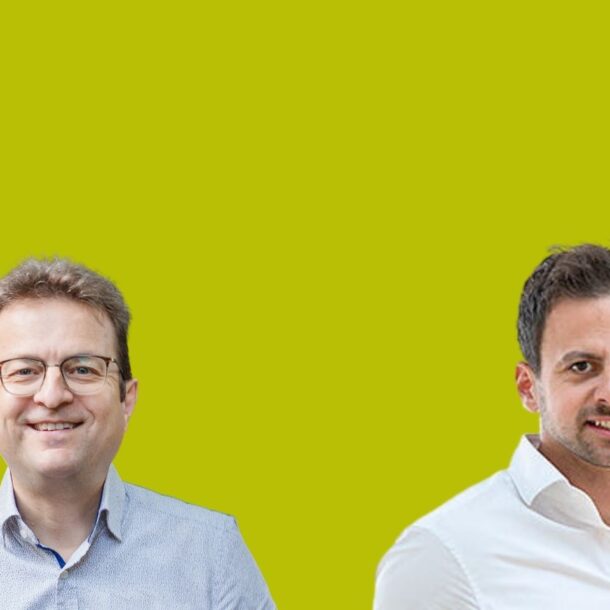
Re: Coaching: Three question marks
The three question marks regarding coaching stand for “Discovery”. When creating the website, some of you shared wishes for blog articles. So today, I am answering three of your questions about coaching.
Why are there so many coaches?
“Coach” is not a protected term. Anyone can call themselves a coach. That is undoubtedly a factor in the impression that there are “so many coaches”. A web search for “coach” in my small town alone turns up over twenty hits.
In everyday life, people talk about “coach” for somebody who, in fact, is a “trainer”. Additionally, people use “coach” but mean “mentor”, i.e. someone who has the answers to my questions. As with the coach, this is not a relationship at eye level.
I don’t coach a problem, but the client as a whole person. The ICF defines coaching as “partnering with clients in a thought-provoking and creative process that inspires them to maximize their personal and professional potential. ” (Source: International Coaching Federation)
The ICF estimates the number of coaches worldwide at over 70,000; 70% are women. Coaching is a $3 billion global market growing at more than 10% annually (Source: ICF Global Coaching Study 2020).
In recent years there has been a change in the perception of coaching: from coaching as a measure to support employees with performance problems to a personal development offering to master new challenges or to shape the big agenda of life. As a result, coaching has a much more positive connotation, both among clients and companies.
Coaching has also become more widespread in companies: while it was previously only available to top executives, it is now accessible to more and more employees. That is why an increasing number of companies are setting up internal coaching programs to cover the need for coaches. Hence, leading to a growing demand for coaches.
In an article, Josh Bersin, one of my favourite analysts from the people tech world, also cites the emergence of online coaching platforms like BetterUp or CoachHub as evidence and response to the increasing demand for coaches.
In a rapidly changing world, people are exposed to challenging situations, whether at work or privately. Or I’m in a new phase of my life, and I’m looking for orientation, as I experienced it during my sabbatical. As a result, some people are ready to hire a neutral reflection partner: A coach holds the client’s agenda and is confident that the client has the resources to find a solution.
Continuous learning is becoming increasingly important. The coaches I work with show incredible curiosity and a great desire to continuously learn —people with the curiosity “gene” love to work as coaches. The more people become continuous learners, the more coaches there will be.
Ultimately, coaching also offers a flexible way to build your income, depending on experience and company constellation in a range of 120 – 240 EUR per hour in Germany (Source: Coaching Magazin – in German). Furthermore, thanks to the experiences of the pandemic years, many people have become accustomed to experiencing coaching via video conference. Thus significantly increasing the flexibility for the coaches and making life as a coach more attractive.
How do you manage a coaching business while still working and is this the opposite of being mindful to yourself?
I have created “calendar space” for my part-time coaching business with a four-day week.
I have agreed with my manager that I will work 5-10% of my working hours as a coach for colleagues; i.e. coaching is part of my job, same as for the other 600 internal coaches at SAP. Moreover, I’m currently directly supporting the Global Coaching Program at SAP as a fellow.
Coaching is a wonderful experience. I am fulfilled when I can accompany clients for a few weeks. The sessions with my clients are the highlight of my week. It’s so enriching to coach a person as a whole for an hour with full presence and curiosity. It’s really the opposite of stress.
Coaching offers many mindful moments because I’m with the client in the “here and now”. Since I do it part-time, I have also set myself a limit on the number of clients: a maximum of eight clients in parallel.
With many experienced coaches out there and the number continuously increasing, how do you differentiate yourself to be successful?
Yes, there are many very experienced coaches on the road. For example, during my Co-Active coaching training, I benefited from excellent coaches as the “front of the room” leaders. That’s positive because actually everyone needs a coach: having someone who accompanies you in your development and transformation is truly priceless.
A coaching relationship is very personal. Therefore, there is always a first “date” in an engagement; I call it “Appetizer“, others prefer to speak of “Chemistry Session”. The chemistry between client and coach must be right. It is a conscious decision on both sides for or against an engagement at eye level.
Therefore, it is essential to develop your style. Authenticity is a crucial factor. Every coach is a personality, just as every client is unique.
I’m a part-time coach. I want to experience every coaching session with joy and sense its impact. That’s why I choose people as clients who want to transform. I enjoy working with people who make our world better for the next generations: Changemakers.
Eventually, I live from the exchange with other brilliant coaches: I am part of the SAP Coaching Community, have initiated an internal SAP Co-Active Coaching Peer Circle together with Claudia Becker and share my coaching business experience with four outstanding Co-Active Coaching colleagues.
What is your perspective on these questions?
You are welcome to share them in the comments.
I love to hear from you: I’m open to further questions and article requests; please send them to me.
Categories: #coaching #career
Tags: #threequestions #part-time #uniqueness #mindfulness #coachingbusiness
Address
Felix Harling

